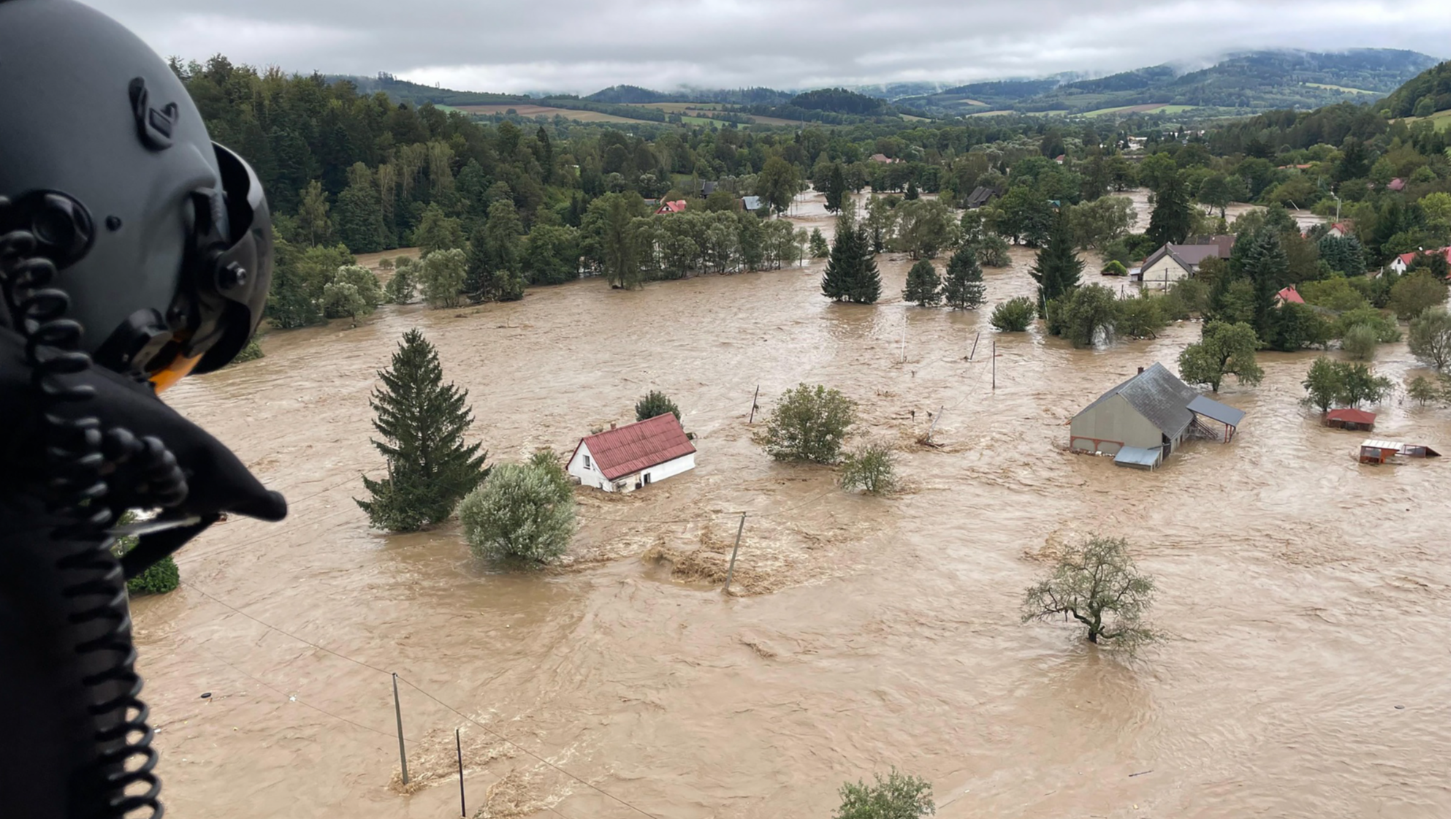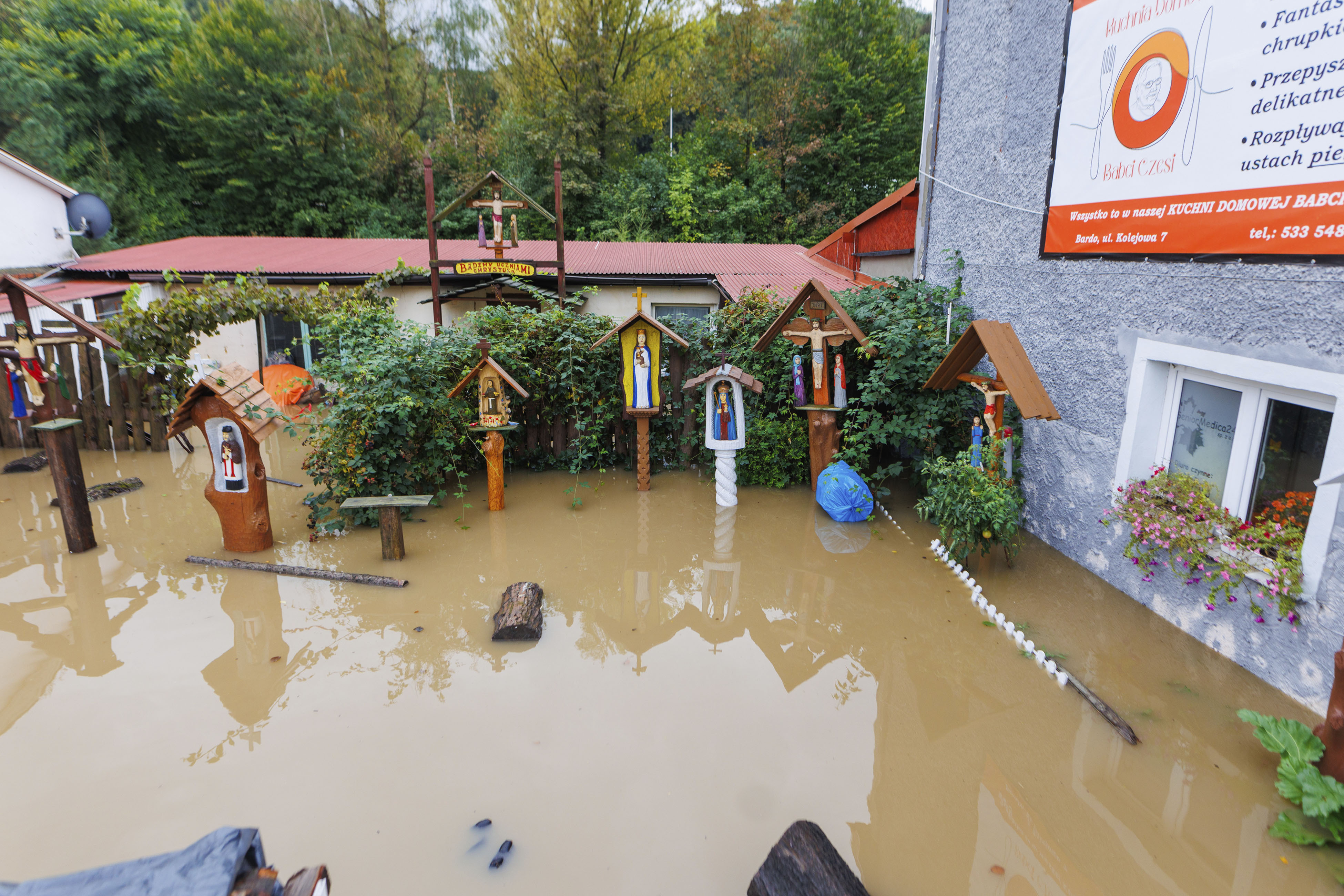
JESENIK/LITOVEL, Czech Republic - Residents of several areas of Poland and the Czech Republic rushed to evacuate on Monday as others in central Europe began cleaning up after the worst flooding in over two decades left a trail of destruction and a rising number of deaths.
Border areas between the Czech Republic and Poland were hit hard over the weekend as heavy rain that has fallen since last week and surging water levels collapsed some bridges, forced evacuations and damaged cars and houses.
At least 17 people have died in flooding from Romania to Poland in the past few days.
On Monday afternoon, the mayor of Nysa, a town of more than 40,000 people in southern Poland, called on residents to evacuate immediately after a nearby floodbank was damaged.
ALSO READ: Central European flooding widens as death toll rises
In the northeastern Czech city of Ostrava, a broken barrier on the Odra river at its confluence with the Opava river caused flooding of the city's industrial area including the BorsodChem chemical plant, coking plant OKK Koksovny and others. Hundreds of people were being evacuated from more residential areas as well.
In the Czech town of Litovel, 70 percent of which was submerged by water up to a meter deep on Monday, residents described their fear as waters rose quickly over the weekend.
"I was just very, very afraid... I ran away because the water was rising very quickly near the house," said Renata Gaborova, 39.

'Apocalypse'
Poland's government announced a state of natural disaster in affected areas and said that it had set aside 1 billion zlotys ($260 million) to help victims.
Prime Minister Donald Tusk said he was in touch with the leaders of other affected countries and that they would ask the European Union for financial aid.
Szymon Krzysztan, 16, standing in the town square of Ladek Zdroj, described losses from the floods as "unimaginable".
"It's a city like in an apocalypse... It's a ghost town," he said.
Reuters footage showed the town strewn with debris and mud.
ALSO READ: Typhoon Bebinca makes landfall in Shanghai
"Armageddon... It literally ripped out everything because we don't have a single bridge. In Ladek, all bridges have disappeared. We are practically cut off from the world," Jerzy Adamczyk, 70, told Reuters.
In Jesenik, a Czech town across the border that was inundated on Sunday, a clean-up was starting after waters receded to show damaged cars and debris on the streets.
"There were two meters of water that ran through the street... There are many, many destroyed cars," said resident Zdenek Kuzilek. "Telephones are not working, there is no water, no electricity."
In eastern Romania, where villages and towns were submerged over the weekend, Emil Dragomir, mayor of Slobozia Conachi, told Romanian television some people had been left with just the clothes they had on.
Preparation
While water was receding in some areas, others, including Wroclaw, a Polish city of some 600,000 people, were shoring up defenses for floodwaters heading their way.
In Romania, the flooding killed seven people over the last few days. An Austrian firefighter died on Sunday. In the state of Lower Austria that surrounds Vienna, two men aged 70 and 80 were found drowned in their homes, a police spokesperson said on Monday.
Polish police said four people died as a result of floods in Poland, and in the Czech Republic three have died, a police official said.
Slovakia's capital Bratislava and the Hungarian capital Budapest were both preparing for possible flooding as the River Danube rose.
Hungarian Interior Minister Sandor Pinter said efforts were focused on keeping the river and its tributaries within their banks and said up to 12,000 soldiers were on standby to help.
In Austria, the levels of rivers and reservoirs fell overnight as rain eased but officials said they were bracing for a second wave as heavier rain was expected.


